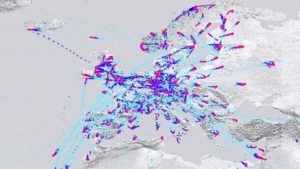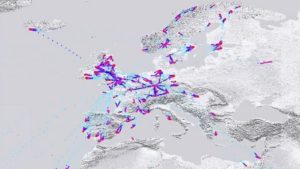by Joana Kollert
Flying is bad for the climate – this is an uncontested fact. However, air traffic is necessary for weather forecasts, as airplanes send live data to weather stations. COVID-19 has caused a massive decline in air travel, hereby affecting the quality of weather forecasts.


Globally, the aviation industry is responsible for about 2.4% of all anthropogenic CO2 emissions. While this small contribution may suggest that an individual’s choice to fly (or not) is negligible in the grand scheme of things, it is also true that transport choices have the highest mitigation potential amongst individual consumption options.
COVID-19 has hugely damaged the aviation industry; international air traffic has declined by about 85% . Passengers were either not allowed to fly due to travel restrictions, or scared to fly due to the risk of infection. This is good news for the climate, but not for weather predictions!
For example, the global Deutscher Wetterdienst Weathermodel “ICON” receives 10% of its measurements from aircrafts. According to the European Center for Medium-Range Weather Forecasts, on average, the decline in aircraft measurements reduces the accuracy of forecast models by about 4%.
Weighing the benefit of reduced air traffic for the climate with the disadvantage for weather forecasts nevertheless seems inappropriate; I would still rather be caught in an unexpected rainshower tomorrow than in a flood in 10 years.